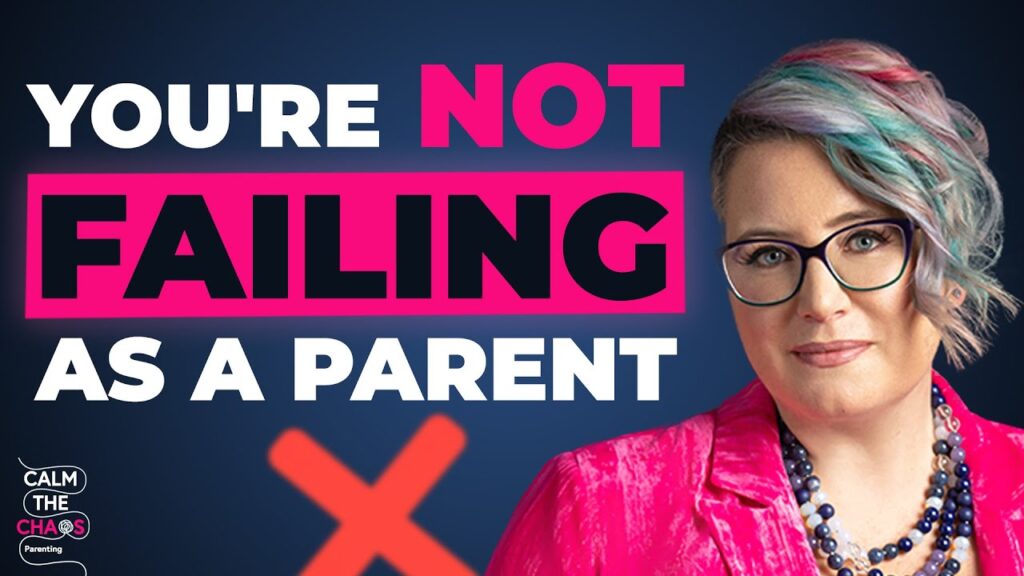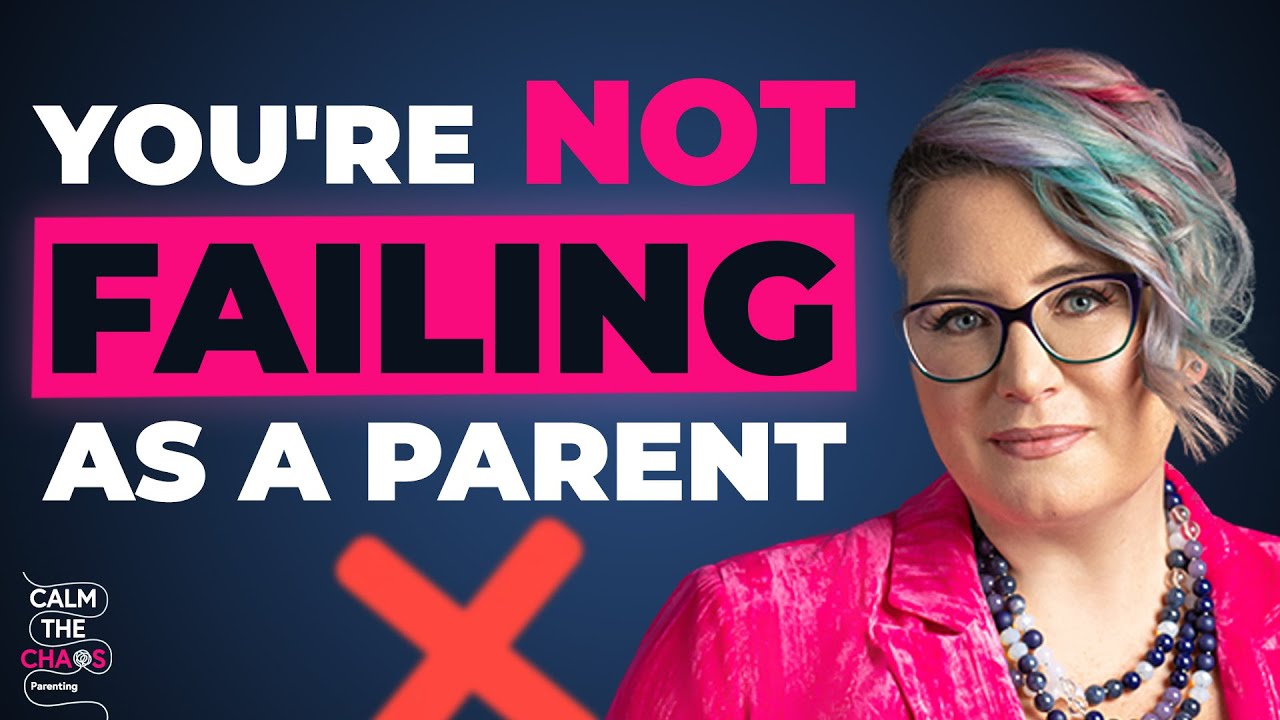
Failing as a Parent: Understanding the Feelings and Finding Solutions
The feeling of failing as a parent is a deeply unsettling one. It’s a sentiment many parents experience at some point, regardless of their dedication or efforts. This article aims to explore the complexities of this feeling, delve into its potential causes, and offer practical strategies for navigating these challenging moments. Recognizing that you might be failing as a parent is the first step toward positive change and improvement. It’s a sign of self-awareness and a desire to do better for your children. Let’s unpack the often-unspoken truths behind parental struggles and find constructive ways forward.
The Root Causes of Feeling Like You’re Failing as a Parent
Several factors can contribute to the feeling of failing as a parent. These can range from internal pressures to external influences, and often, it’s a combination of both.
- Unrealistic Expectations: Societal pressures, social media portrayals, and even our own childhood experiences can create unrealistic expectations of what parenting should look like. The ‘perfect parent’ myth is a dangerous one, leading to constant self-criticism and a sense of inadequacy.
- Lack of Support: Parenting can be incredibly isolating, especially without a strong support system. Whether it’s a partner, family, friends, or community resources, a lack of support can amplify feelings of being overwhelmed and unable to cope.
- Mental Health Challenges: Postpartum depression, anxiety, and other mental health conditions can significantly impact a parent’s ability to function effectively and enjoy their role. These conditions can distort perceptions and lead to feelings of failing as a parent, even when they are doing their best.
- Difficult Child Behaviors: Dealing with challenging behaviors in children, such as defiance, aggression, or learning difficulties, can be incredibly draining and make parents feel ineffective. It’s crucial to remember that these behaviors are often a sign that the child needs support and understanding, not necessarily a reflection of parental failure.
- Personal Stressors: Financial difficulties, relationship problems, job insecurity, and other personal stressors can all impact a parent’s ability to cope with the demands of parenting. When overwhelmed by these external pressures, it’s easy to feel like you’re failing as a parent.
Recognizing the Signs: Are You Really Failing?
It’s important to distinguish between feeling like you’re failing as a parent and actually exhibiting behaviors that are detrimental to your child’s well-being. While the feeling itself is valid and should be addressed, it doesn’t necessarily mean you are a bad parent. However, certain signs may indicate that you need to seek professional help or make significant changes in your parenting approach.
- Consistent Neglect: Failing to provide for your child’s basic needs, such as food, shelter, clothing, and medical care, is a clear sign of neglect.
- Emotional Abuse: Regularly belittling, criticizing, or threatening your child can have severe emotional consequences.
- Physical Abuse: Any form of physical violence towards your child is unacceptable and constitutes abuse.
- Lack of Emotional Availability: Consistently ignoring your child’s emotional needs or failing to provide them with warmth and affection can be damaging to their development.
- Unhealthy Coping Mechanisms: Relying on alcohol, drugs, or other unhealthy coping mechanisms to deal with the stress of parenting can negatively impact your ability to care for your child.
If you recognize any of these signs in your own behavior, it’s crucial to seek professional help immediately. [See also: Resources for Parents in Crisis]
Strategies for Overcoming the Feeling of Failing as a Parent
If you’re struggling with the feeling of failing as a parent, know that you’re not alone, and there are steps you can take to improve the situation.
Acknowledge and Validate Your Feelings
The first step is to acknowledge and validate your feelings. Don’t dismiss them or try to suppress them. Allow yourself to feel the emotions without judgment. Recognize that it’s okay to feel overwhelmed, frustrated, or inadequate at times. Parenting is hard work, and it’s normal to have moments of doubt.
Challenge Unrealistic Expectations
Examine your expectations of yourself as a parent. Are they realistic? Are you holding yourself to an impossible standard? Let go of the ‘perfect parent’ myth and accept that you will make mistakes. Focus on progress, not perfection. Remember that every parent makes mistakes; it’s how you learn from them that matters. Understanding that failing as a parent sometimes means learning and growing is essential.
Seek Support
Reach out to your support system. Talk to your partner, family, friends, or a therapist. Share your feelings and ask for help. Don’t be afraid to admit that you’re struggling. A strong support system can provide emotional support, practical assistance, and valuable perspective. Consider joining a parenting group or online forum to connect with other parents who are going through similar experiences. [See also: Finding a Parenting Support Group Near You]
Practice Self-Care
Taking care of yourself is essential for effective parenting. When you’re feeling overwhelmed and depleted, you’re less able to meet your child’s needs. Make time for activities that you enjoy and that help you relax and recharge. Prioritize sleep, healthy eating, and exercise. Even small acts of self-care can make a big difference in your overall well-being. If you feel you are failing as a parent, consider if your own needs are being met.
Focus on Your Strengths
Instead of dwelling on your perceived weaknesses, focus on your strengths as a parent. What are you good at? What do you enjoy about parenting? Remind yourself of the positive things you do for your child. Celebrate your successes, no matter how small. Recognizing your strengths can boost your confidence and help you feel more capable.
Communicate with Your Child
Open and honest communication is crucial for a healthy parent-child relationship. Talk to your child about your feelings and listen to their concerns. Explain your expectations and boundaries clearly. Be willing to compromise and negotiate. When children feel heard and understood, they are more likely to cooperate and respect your authority. If you are failing as a parent in communication, seek guidance on effective communication strategies.
Seek Professional Help
If you’re struggling with persistent feelings of inadequacy or if you’re engaging in behaviors that are detrimental to your child’s well-being, don’t hesitate to seek professional help. A therapist or counselor can provide you with support, guidance, and strategies for improving your parenting skills. They can also help you address any underlying mental health issues that may be contributing to your feelings of failing as a parent. [See also: Finding a Qualified Therapist for Parenting Issues]
Learn and Adapt
Parenting is a continuous learning process. Be open to learning new strategies and approaches. Read books, attend workshops, or take online courses on parenting. Adapt your parenting style to meet your child’s individual needs and developmental stage. What worked for one child may not work for another. Being flexible and adaptable is key to effective parenting. If you are failing as a parent in a specific area, research and implement new techniques.
Forgive Yourself
Everyone makes mistakes, including parents. Don’t beat yourself up over past errors. Learn from your mistakes and move on. Forgive yourself for not being perfect. Remember that your child loves you unconditionally, even when you make mistakes. Showing your child that you can apologize and learn from mistakes is a valuable lesson in itself. The feeling of failing as a parent can be lessened by practicing self-compassion and forgiveness.
Turning Failure into Opportunity
The feeling of failing as a parent, while painful, can be a catalyst for positive change. By acknowledging your struggles, seeking support, and actively working to improve your parenting skills, you can turn failure into an opportunity for growth and development. Remember that parenting is a journey, not a destination. There will be ups and downs, successes and setbacks. The key is to keep learning, keep growing, and keep striving to be the best parent you can be. Even feeling like you are failing as a parent shows you care deeply about your children.
Ultimately, the most important thing is to provide your child with love, support, and a safe and nurturing environment. If you can do that, you’re already doing a great job. Don’t let the feeling of failing as a parent overshadow the many positive contributions you make to your child’s life every day.

